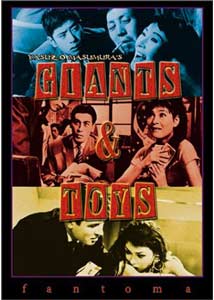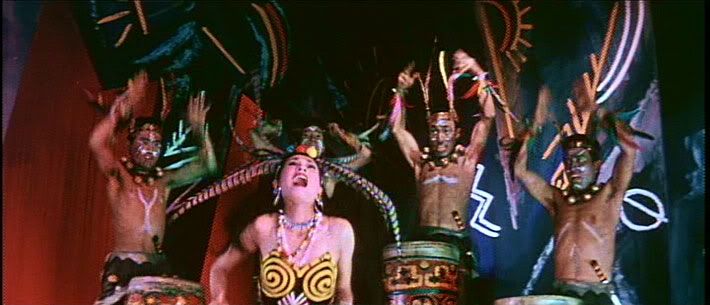 Earlier today, I found myself listening to Paul Anka's version of The Cure's 'The Lovecats', on his he's-had-so-much-surgery-you-can't-tell-if-it's-ironic album Rock Swings, and had a small but significant revelation. For nearly a quarter of a century, I'd thought that Robert Smith had been singing "1-2-3, 1-2-3, 1-2-3 pretty". It was only when Big-haired Bob's tearful groan was replaced by Unfeasible-haired Paul's languorous tenor that I realised the correct line was in fact "wonderfully, wonderfully, wonderfully pretty".
Earlier today, I found myself listening to Paul Anka's version of The Cure's 'The Lovecats', on his he's-had-so-much-surgery-you-can't-tell-if-it's-ironic album Rock Swings, and had a small but significant revelation. For nearly a quarter of a century, I'd thought that Robert Smith had been singing "1-2-3, 1-2-3, 1-2-3 pretty". It was only when Big-haired Bob's tearful groan was replaced by Unfeasible-haired Paul's languorous tenor that I realised the correct line was in fact "wonderfully, wonderfully, wonderfully pretty".Don't worry, this isn't going to be yet another post about amusing misunderstandings of rock lyrics, all "'scuse me while I kiss this guy" and so forth. No, the reason I bring this up is that my immediate reaction when I realised my error (after the obligatory nano-moment of scrotum-tightening embarrassment) was that it was Smith's fault for having sloppy diction, and that it was nice to hear someone like Anka, who ensured you could understand all the words.
Oh Christ.
I have become my parents.
Actually, it's rather appropriate that the early rumblings of a midlife crisis (yes, the big 4-0 is the next candle to appear) should come when listening to this particular record. Anka, of course, wrote the English lyrics to 'My Way', which is the song that ghastly people pick on Desert Island Discs when they reach a certain age and want to disclaim responsibility for all their crimes and misdemeanours. (Nice people, like the wonderful Oliver Postgate, pick the infinitely preferable 'Non, Je Ne Regrette Rien'.)
But with his version of 'The Lovecats' Anka seems to present a more realistic version of old age, rejecting the Vegasoid bravado that we associate with Sinatra and a thousand Sinatra wannabes, desperately grasping for the little joys that he was too busy or scared or stupid to use when he was in his prime. "Into the sea, you and me," he croons, "all these years and no one heard." Which suddenly seems to echo another lyric of missed opportunities, and one that's become just as much a cliche for neurotic adolescents (who, by definition, don't yet understand the full weight of the sadness):
I grow old … I grow old …
I shall wear the bottoms of my trousers rolled.
Shall I part my hair behind? Do I dare to eat a peach?
I shall wear white flannel trousers, and walk upon the beach.
I have heard the mermaids singing, each to each.
I don't know much about Eliot's taste in music: probably something deeply choral and Churchy. But I've started to think that, had history been more imaginative, he might have quite liked The Cure. Although he'd probably complain that he couldn't understand the words, and that it was too loud, and is that a boy or a girl, you can't tell the difference these days...











